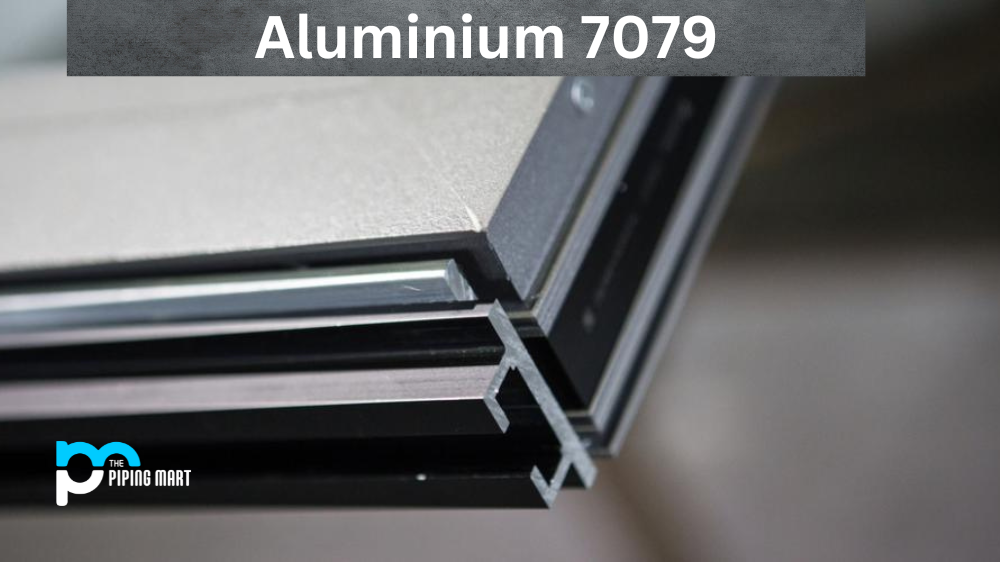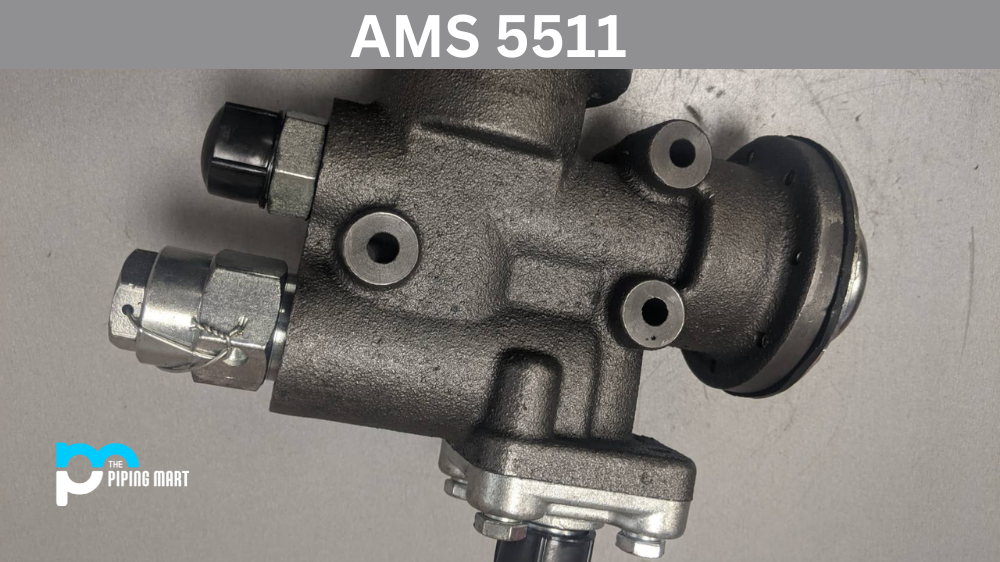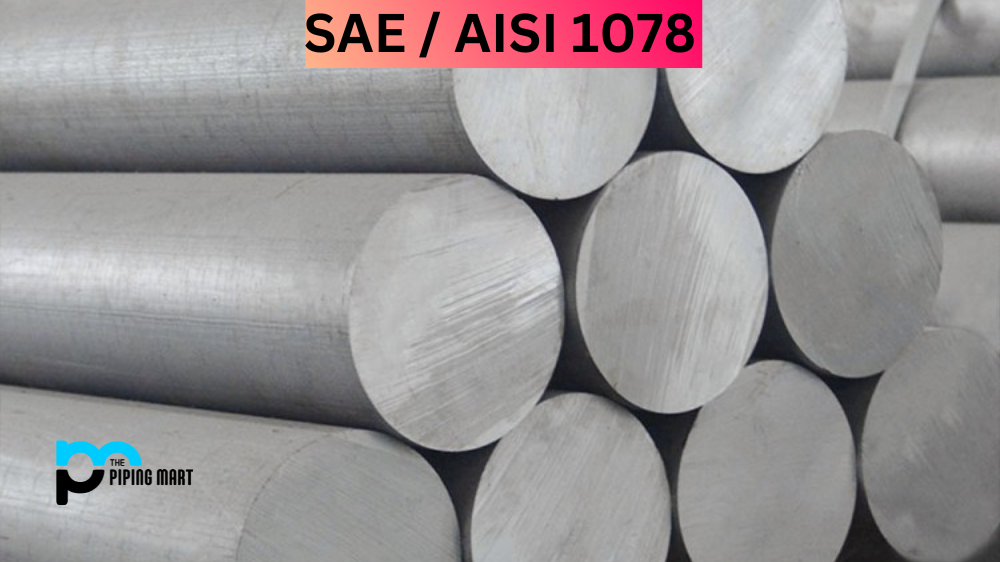Aluminium 7079 is an alloy that has a wide range of applications. From its corrosion resistance to its heat resistance and from its machining capabilities to its welding ability, aluminum 7079 is a versatile material used in many industries. Let’s take a closer look at the properties and uses of UNS A97079.
7079 Aluminum Composition
| Element | Content (%) |
|---|---|
| Zinc, Zn | 3.8-4.8 |
| Magnesium, Mg | 2.9-3.7 |
| Copper, Cu | 0.40-0.8 |
| Iron, Fe | 0.40 max |
| Silicon, Si | 0.30 max |
| Manganese, Mn | 0.10-0.30 |
| Chromium, Cr | 0.10-0.25 |
| Titanium, Ti | 0.10 max |
| Remainder (each) | 0.5 max |
| Remainder (total) | 0.15 max |
| Aluminum, Al | Remainder |
7079 Aluminum Mechanical Properties
| Hardness, Brinell | 150 | 150 | AA; Typical; 500 g load; 10 mm ball |
|---|---|---|---|
| Hardness, Knoop | 191 | 191 | Converted from Brinell Hardness Value |
| Hardness, Rockwell A | 53.5 | 53.5 | Converted from Brinell Hardness Value |
| Hardness, Rockwell B | 87 | 87 | Converted from Brinell Hardness Value |
| Hardness, Vickers | 175 | 175 | Converted from Brinell Hardness Value |
| Ultimate Tensile Strength | 572 MPa | 83000 psi | AA; Typical |
| Tensile Yield Strength | 503 MPa | 73000 psi | AA; Typical |
| Elongation at Break | 11 % | 11 % | AA; Typical; 1/16 in. (1.6 mm) Thickness |
| Elongation at Break | 11 % | 11 % | AA; Typical; 1/2 in. (12.7 mm) Diameter |
| Modulus of Elasticity | 71.7 GPa | 10400 ksi | AA; Typical; Average of tension and compression. Compression modulus is about 2% greater than tensile modulus. |
| Poisson’s Ratio | 0.33 | 0.33 | |
| Fatigue Strength | 159 MPa | 23000 psi | AA; 500,000,000 cycles completely reversed stress; RR Moore machine/specimen |
| Fracture Toughness | 20 MPa-m½ | 18.2 ksi-in½ | K(IC) in S-L Direction |
| Fracture Toughness | 25 MPa-m½ | 22.8 ksi-in½ | K(IC) in T-L Direction |
| Fracture Toughness | 29 MPa-m½ | 26.4 ksi-in½ | K(IC) in L-T Direction |
| Machinability | 70 % | 70 % | 0-100 Scale of Aluminum Alloys |
| Shear Modulus | 26.9 GPa | 3900 ksi | |
| Shear Strength | 331 MPa | 48000 psi | AA; Typical |
7079 Aluminum Thermal Properties
| CTE, linear 68°F | 23.6 µm/m-°C | 13.1 µin/in-°F | AA; Typical; Average over 68-212°F range. |
|---|---|---|---|
| CTE, linear 250°C | 25.2 µm/m-°C | 14 µin/in-°F | Average over the range 20-300ºC |
| Specific Heat Capacity | 0.96 J/g-°C | 0.229 BTU/lb-°F | |
| Thermal Conductivity | 130 W/m-K | 900 BTU-in/hr-ft²-°F | AA; Typical at 77°F |
| Melting Point | 477 – 635 °C | 890 – 1175 °F | AA; Typical range based on typical composition for wrought products 1/4 inch thickness or greater. Homogenization may raise eutectic melting temperature 20-40°F but usually does not eliminate eutectic melting. |
| Solidus | 477 °C | 890 °F | AA; Typical |
| Liquidus | 635 °C | 1175 °F | AA; Typical |
7079 Aluminum Uses
aluminum 7079 offers superior performance in many areas, making it a popular choice for many manufacturers and metalworkers. It is commonly used in aerospace engineering, automotive components, chemical tanks, oil rigs, and other marine applications because it offers excellent corrosion resistance in harsh environments. It also has excellent electrical conductivity and heat resistance. Other uses include construction elements such as window frames, door frames, and facades; pipe systems; and structural elements such as beams and columns.
Corrosion Resistance
aluminums 7079 offers superior corrosion resistance compared to other alloys due to its high chromium content, which increases its oxidation rate. This makes aluminum 7079 ideal for use in harsh environments where exposure to moisture or chemicals can cause corrosion or rusting. It also has good abrasion resistance, which helps prevent wear on the surface of the material over time.
Heat Resistance
Aluminium 7079 has excellent heat resistance thanks to its chromium content which helps protect it from extreme temperatures up to 700°C (1292°F). This makes it suitable for use in high-temperature applications such as furnaces or boilers where temperatures can be much higher than normal operating conditions. The alloy also retains its strength at high temperatures, so it can be used for components that are subject to extreme temperatures without compromising their integrity.
Machining
Machining aluminum 7079 is relatively easy due to the alloy’s low melting point, which allows it to be cut with standard tools without requiring specialized equipment or techniques. The alloy has good machinability, which means that parts can be produced quickly without sacrificing accuracy or quality.
Welding
Welding aluminum 7097 is possible but requires specialized equipment due to the alloy’s high melting point. The weldability of this material depends on the type of welding process being used; some processes may not be suitable for certain jobs due to their difficulty or complexity, but others may work well depending on the application. Proper preparation is essential when welding this material due to its sensitivity to contamination from oil or grease, which can weaken the weld joint if not properly cleaned before welding begins.
Conclusion:
Aluminium 7079 is an incredibly versatile alloy with many uses across multiple industries, including aerospace engineering, automotive components, chemical tanks, pipes systems, structural elements such as beams and columns and more! Its superior corrosion resistance makes it perfect for use in harsh environments, while its heat-resistant properties mean that it can withstand extreme temperatures up to 700°C (1292°F). It also offers excellent machinability, making manufacturing parts easier while still maintaining accuracy and quality. Welding this material requires specialized equipment, but when done correctly can create strong bonds between components that will last for years! For those looking for a reliable alloy with exceptional properties, aluminium 7079 should definitely be considered!

A passionate metal industry expert and blogger. With over 5 years of experience in the field, Palak brings a wealth of knowledge and insight to her writing. Whether discussing the latest trends in the metal industry or sharing tips, she is dedicated to helping others succeed in the metal industry.




